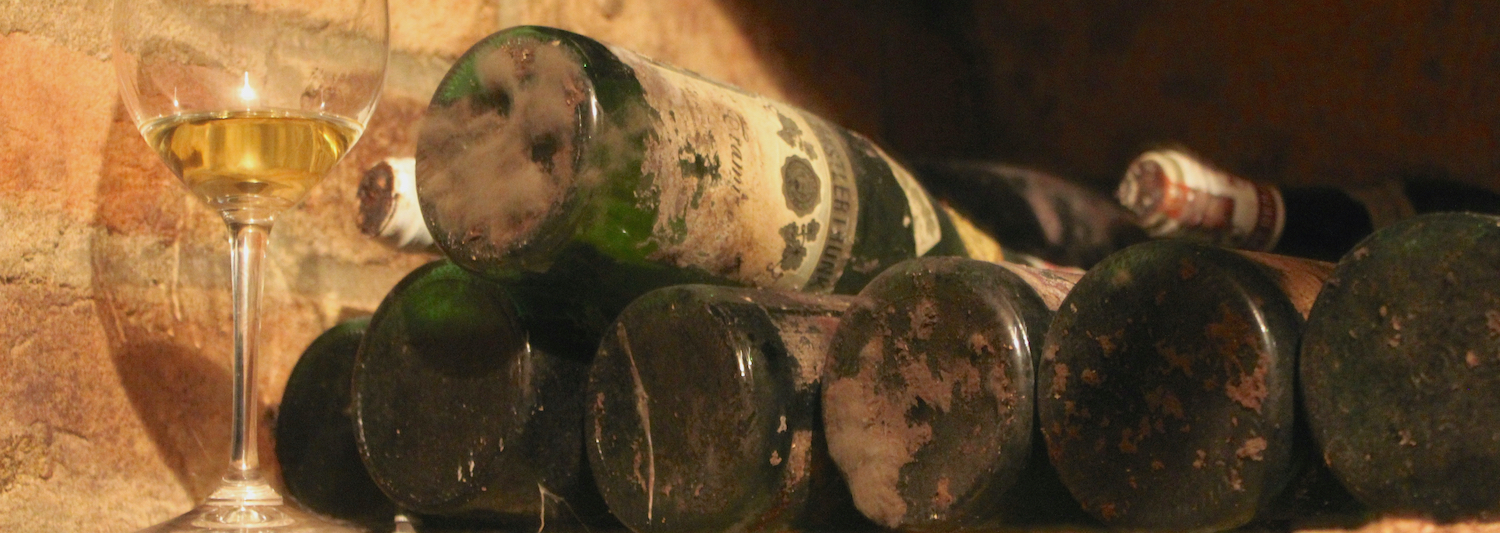

Geyerhof, Kremstal, Austria
"Preserving nature and utilizing the vitality of the soil” is Ilse Maier’s motto at Geyerhof. There is a venerable history of making wine at Geyerhof but for many years now, the family has been managing vineyards organically, focusing on a sound eco-system and healthy soils.
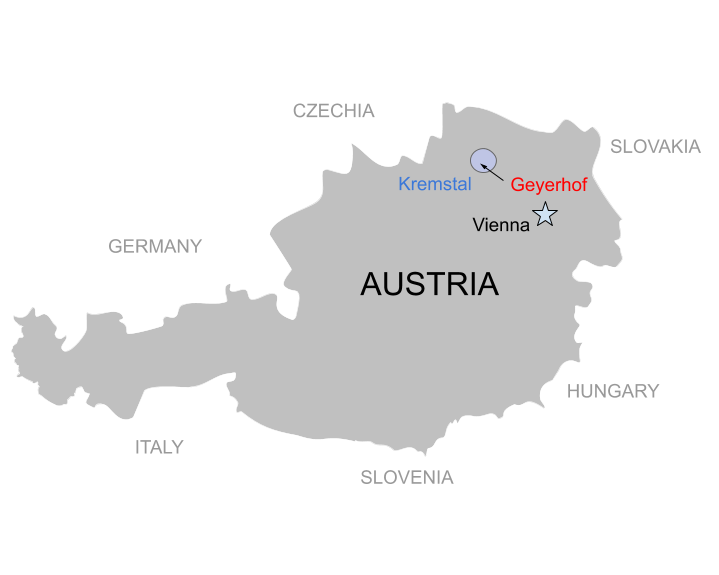
At a Glance
1600
http://www.Geyerhof.at
Kremstal
Cool Pannonian
Loess, loam and primary rocks
280m
Southern bank of the Danube
Grüner Veltliner, Riesling, Zweigelt
20 hectares
Demeter Certified
Natural
http://www.Geyerhof.at
Kremstal
Cool Pannonian
Loess, loam and primary rocks
280m
Southern bank of the Danube
Grüner Veltliner, Riesling, Zweigelt
20 hectares
Demeter Certified
Natural
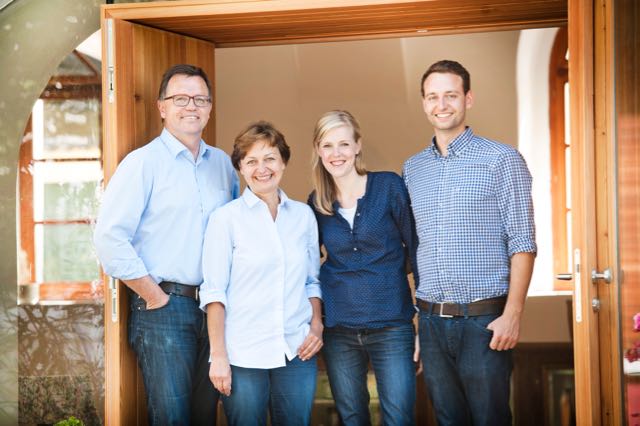
The Maier Family
The People
400 Years in wine. Ilse Maier’s mother’s family has lived in the hilltop village of Oberfucha since the 16th century where the family began in agriculture and brickworks. In the 17th century, Maria Theresia, archduchess of Austria, granted the property owner, whose name was Geyer, a concession to transport wine on the Danube in trade with Hungary and other regions along the river. The ship on the wine label refers to this trade.
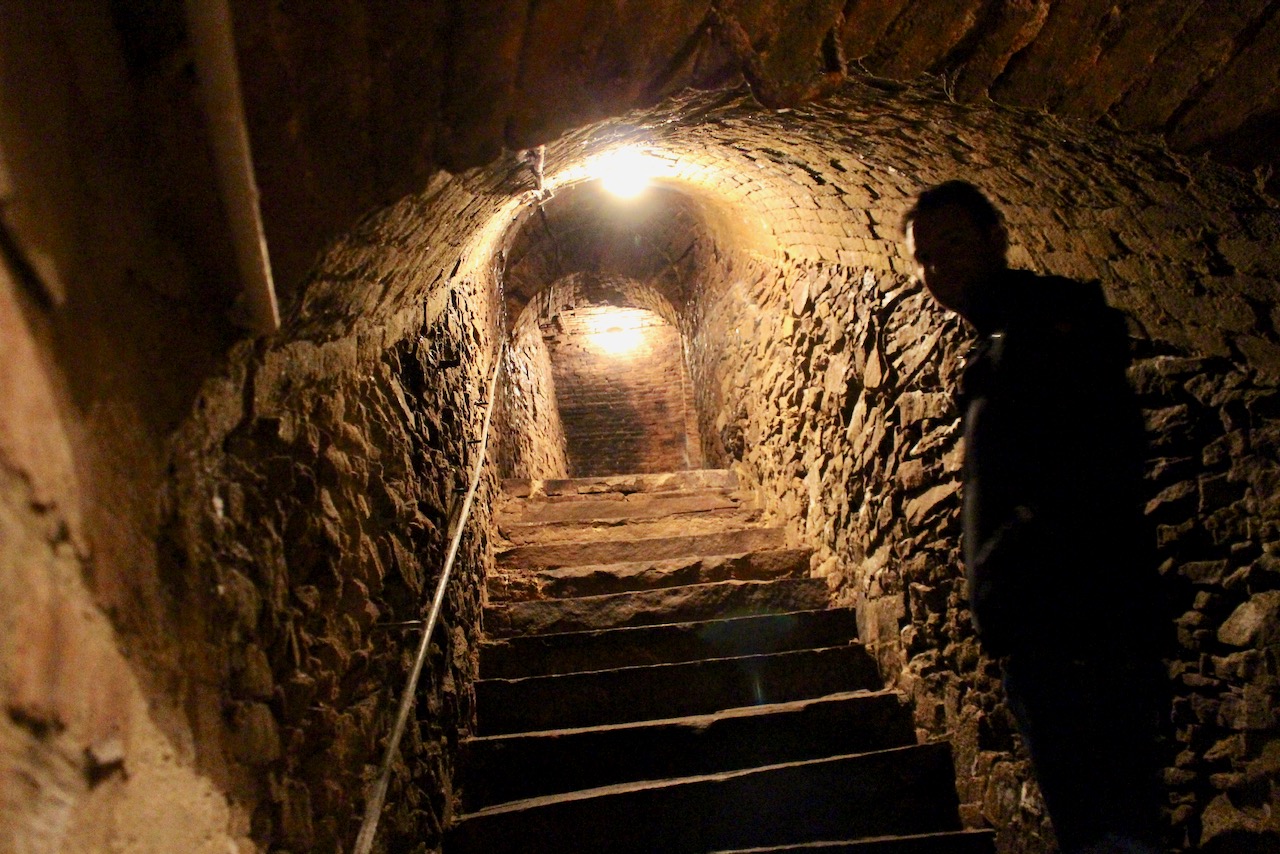
The stairs going Into the old cellar
Today, the winery is housed in a 16th-century structure built of brick, with cellars beneath it constructed between the early 1300’s and the late 1700’s. Among these, the “French cellar” where Napoleon’s army stored their wine rations during a battle in nearby Wagram.
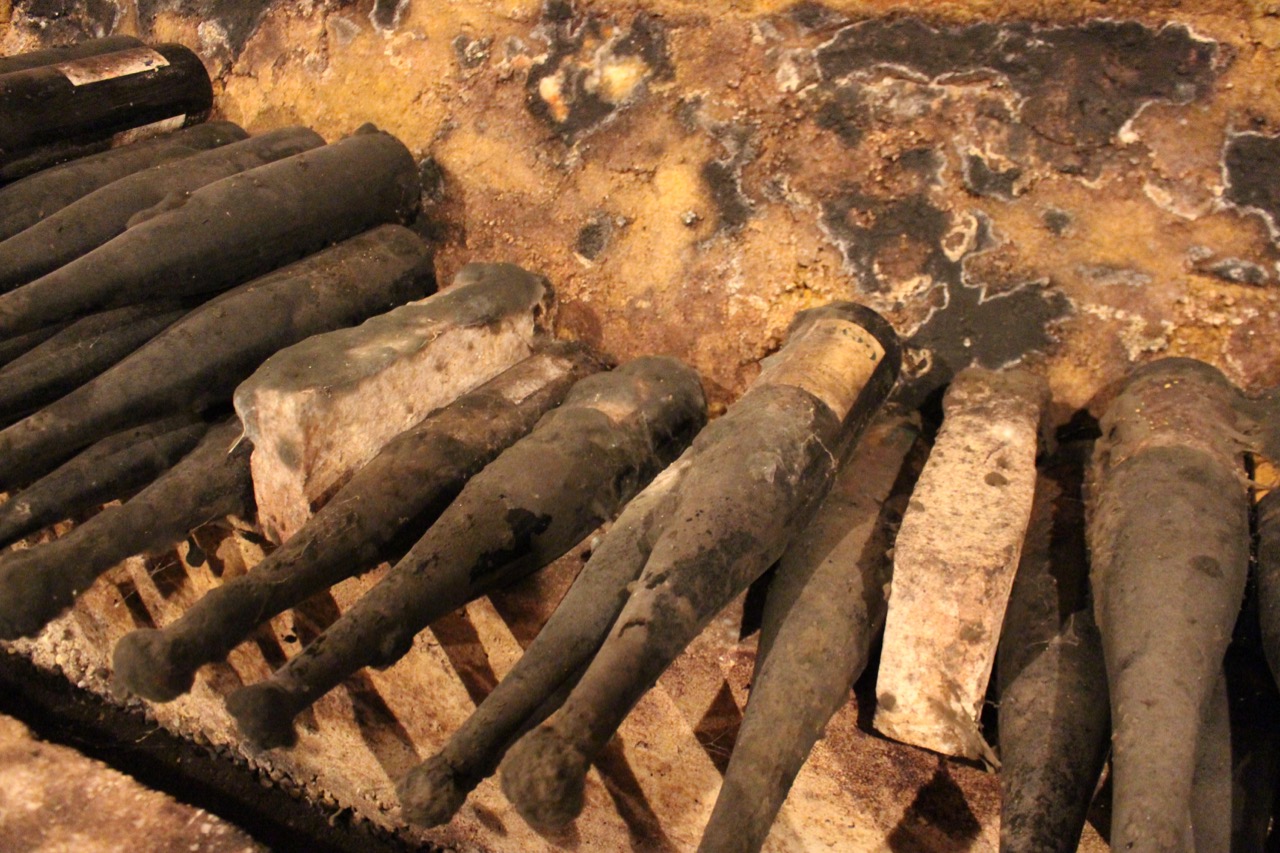
Old bottles in the cellar
The room’s perfect temperature and humidity make it an ideal place to archive the best of each vintage. In 1986, after studying agriculture in Vienna and spending time in San Rapael, Argentina, Ilse joined her father in wine production. Today she works in the vineyards and the cellar, aided by her son Josef to produce wines reflective of their site.

The stairs going Into the old cellar
Today, the winery is housed in a 16th-century structure built of brick, with cellars beneath it constructed between the early 1300’s and the late 1700’s. Among these, the “French cellar” where Napoleon’s army stored their wine rations during a battle in nearby Wagram.

Old bottles in the cellar
The room’s perfect temperature and humidity make it an ideal place to archive the best of each vintage. In 1986, after studying agriculture in Vienna and spending time in San Rapael, Argentina, Ilse joined her father in wine production. Today she works in the vineyards and the cellar, aided by her son Josef to produce wines reflective of their site.
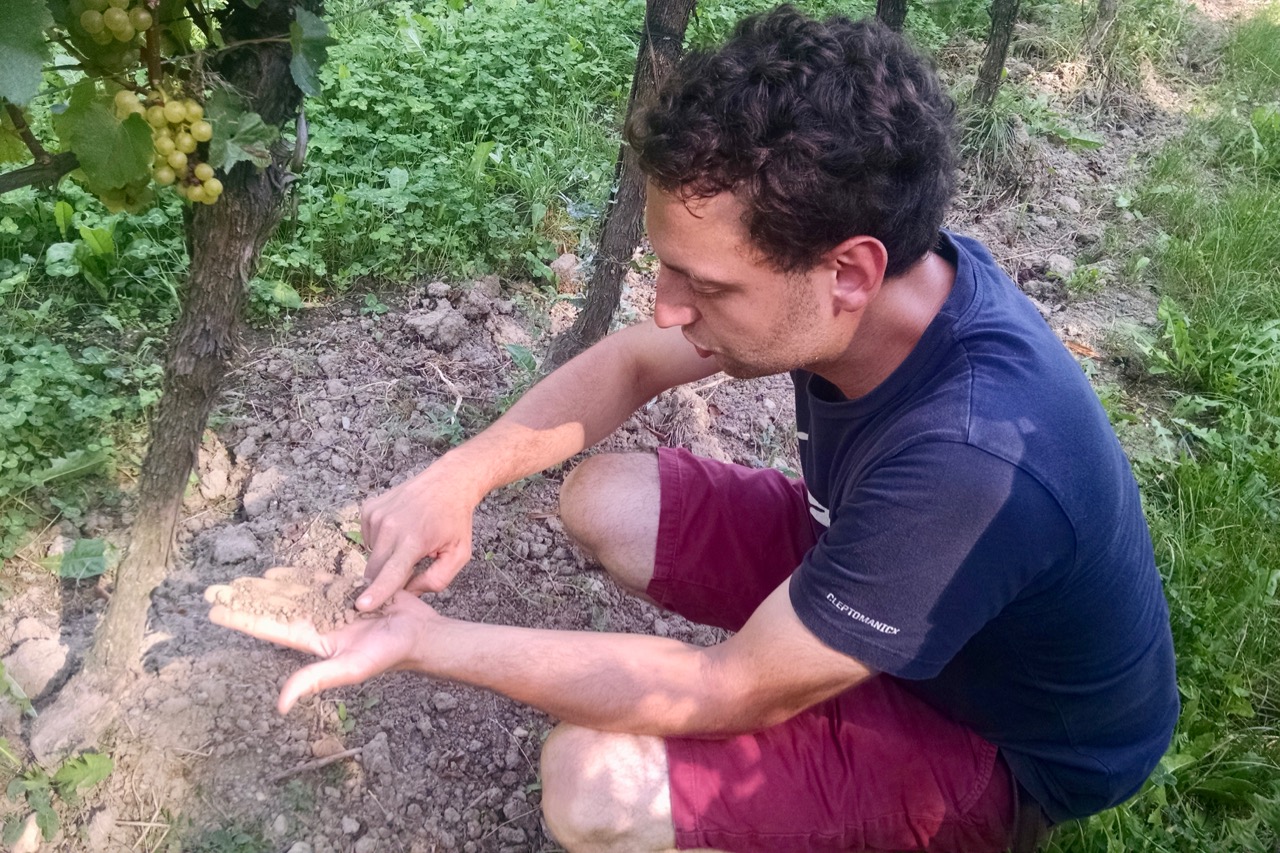
Josef Maier in the vineyard
Vineyard
Geyerhof organically farms roughly 20 hectares located on the hillsides around the winery. Promotion of beneficial species, sowing of nitrogen-absorbing plants, use of compost and rock flour for plant nutrition, and abstaining from the use of all pesticides, insecticides, botrytis and weed control substances as well as soluble mineral fertilizer are all standard practices.
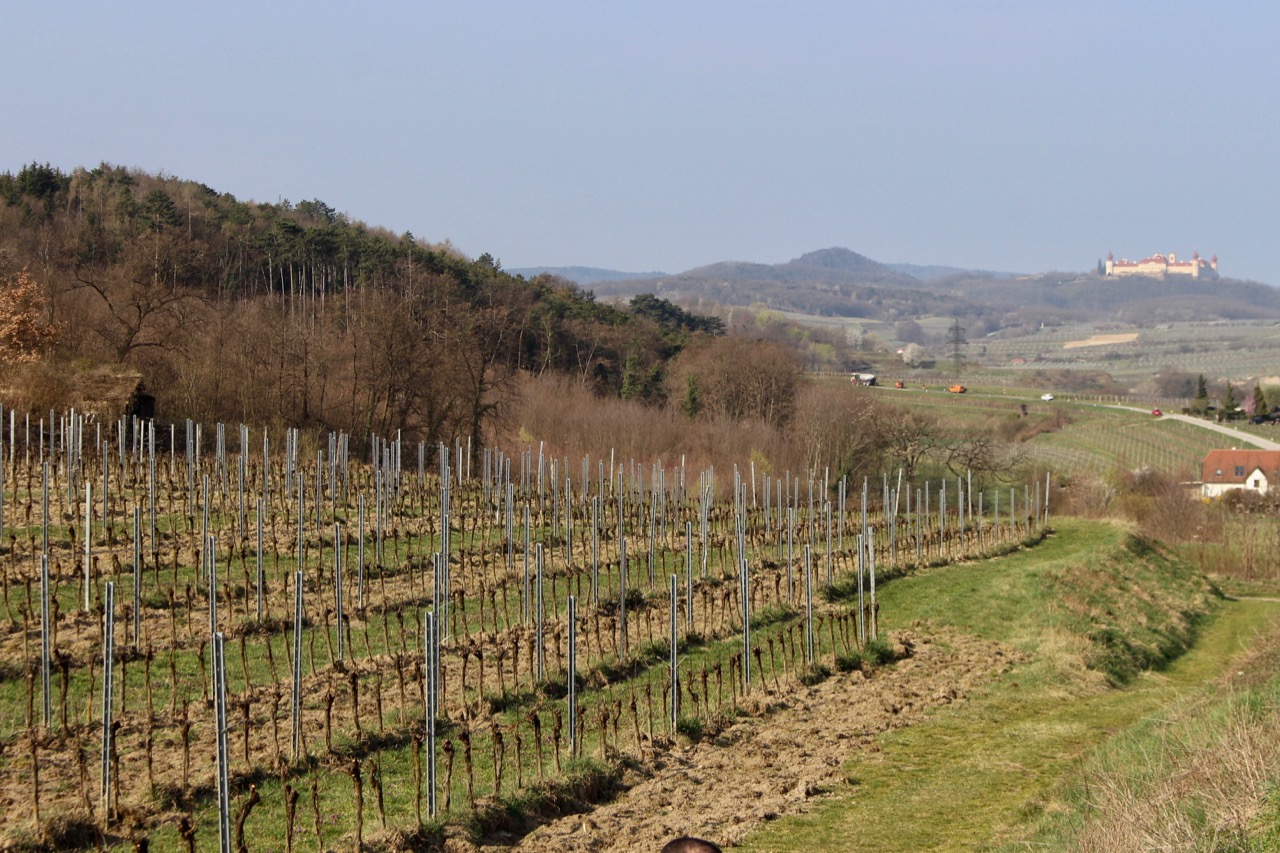
The Rosensteig vineyard
Loess and alluvial soil east of the winery (Gaisberg and Rosensteig), primary rock to the northwest (Steinleithn and Kirchensteig), and loamy soil to the south (Hoher Rain). 60% of the vineyard area is planted to Grüner Veltliner, 20% to Riesling, and the balance to Zweigelt, Weissburgunder, Chardonnay, and Gelber Muskateller. Recent clonal selections came from the famous Knoll vineyards. Asked if biodynamic viticulture has ever seemed to be a next step, Ilse says she doesn’t believe it to be necessary—bio is not a “step up” from organic, just a different approach.

The Rosensteig vineyard
Loess and alluvial soil east of the winery (Gaisberg and Rosensteig), primary rock to the northwest (Steinleithn and Kirchensteig), and loamy soil to the south (Hoher Rain). 60% of the vineyard area is planted to Grüner Veltliner, 20% to Riesling, and the balance to Zweigelt, Weissburgunder, Chardonnay, and Gelber Muskateller. Recent clonal selections came from the famous Knoll vineyards. Asked if biodynamic viticulture has ever seemed to be a next step, Ilse says she doesn’t believe it to be necessary—bio is not a “step up” from organic, just a different approach.
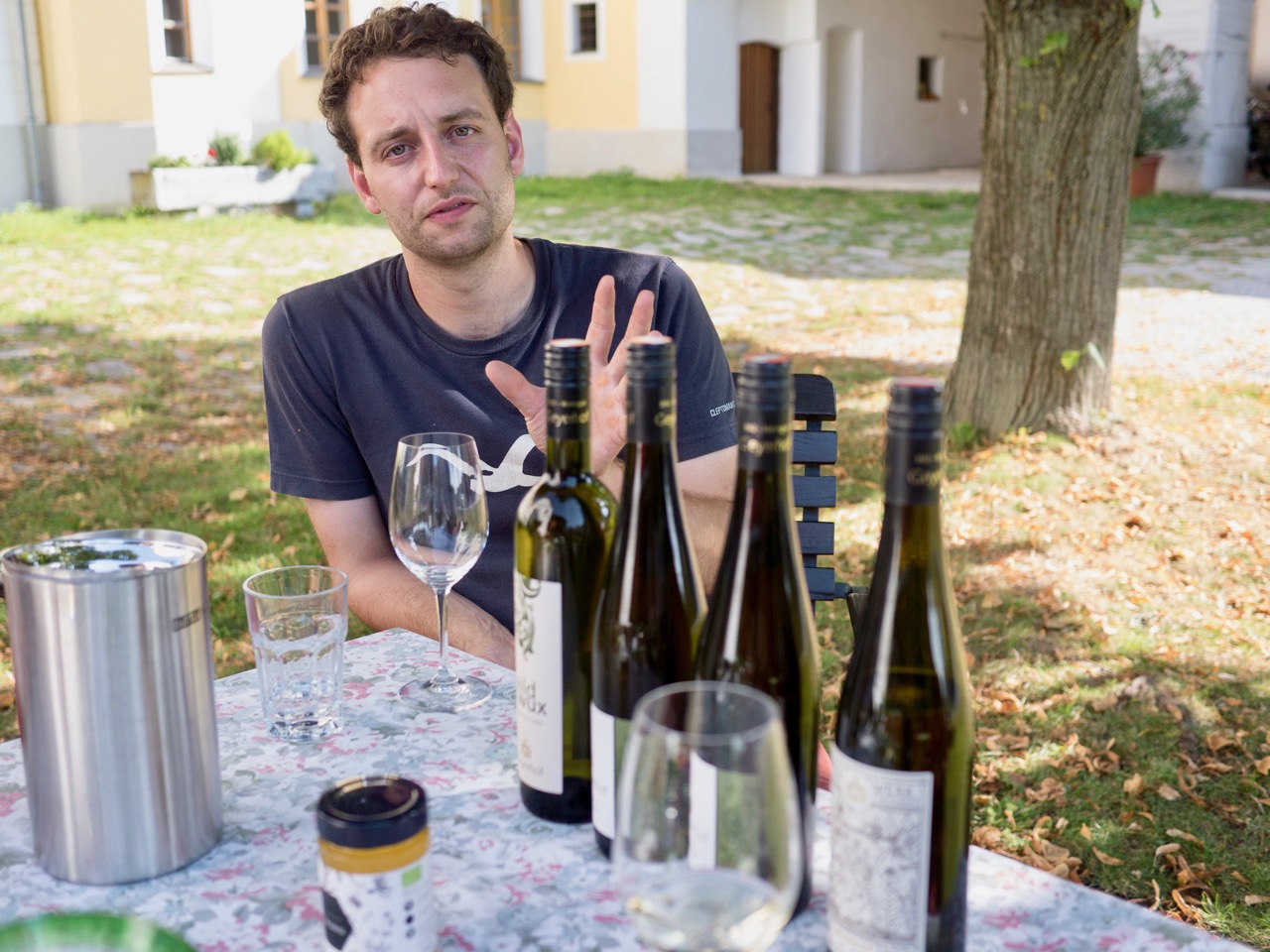
Tasting with Josef Maier
Winemaking
Fruit is handpicked and strictly sorted in the vineyard. Healthy clusters are pressed whole, and the must is intentionally oxidized in the press tray resulting in deeper flavors and greater age-ability. Wines are fermented and aged in 3,000 liter temperature controlled stainless steel tanks.
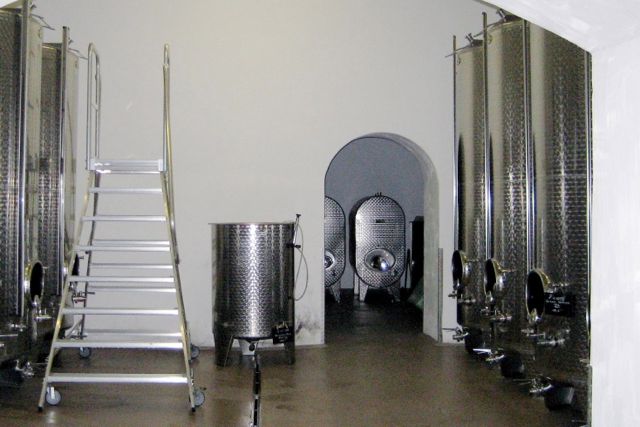
The modern cellar
The slow, even fermentation never exceeds 22 °C. A small percentage of whites and the red wine are aged in neutral oak tanks or barrels. Spontaneous fermentation is preferred, but never at the expense of quality. Malolactic fermentation is avoided in the whites. No other additions are used except for sulfur before bottling. Wines remain on the lees until just before settling, gentle filtration and bottling.

The modern cellar
The slow, even fermentation never exceeds 22 °C. A small percentage of whites and the red wine are aged in neutral oak tanks or barrels. Spontaneous fermentation is preferred, but never at the expense of quality. Malolactic fermentation is avoided in the whites. No other additions are used except for sulfur before bottling. Wines remain on the lees until just before settling, gentle filtration and bottling.
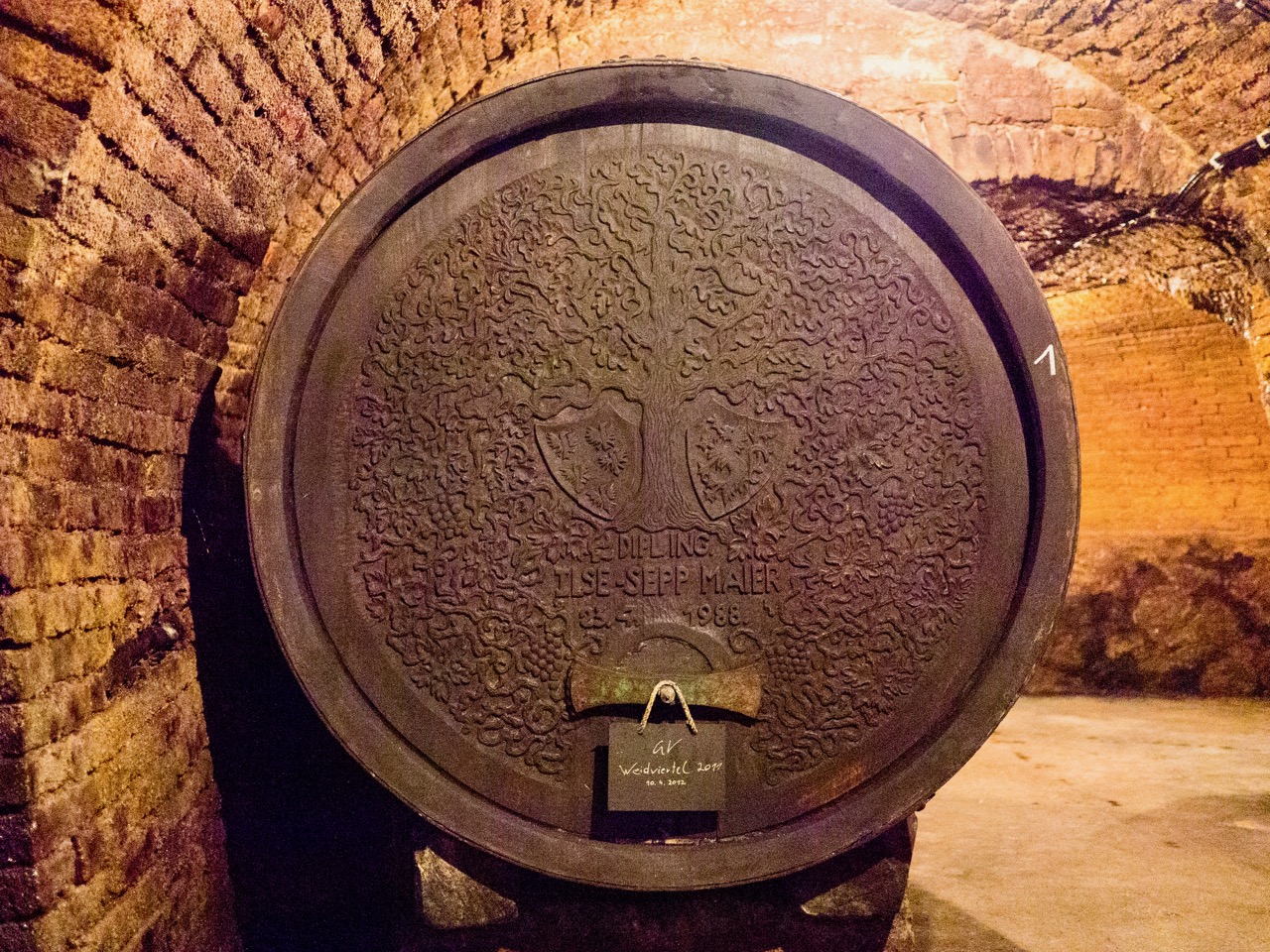
Ilse's wedding barrel

White Wine , Organic
Grüner Veltliner;
12.3%
1.7 g/l
5.7 g/l
Grüner Veltliner;
12.3%
1.7 g/l
5.7 g/l
This vintage marks the 16th generational handoff for the family. Josef and Maria are officially taking over and this wine marks part of this transition. It’s also timed with some bureaucratic wine law changes that have taken away the single vineyard name of Gaisberg. The deep loess soils here produce grippy, dense and structured fruit often able to be harvested in mid to late October even in warmer years. The decision was made to take the Grüner from Gaisberg and create something new under the name of “Hofstudien,” or essentially “Geyerhof studies.” From one vineyard they’re using 4 techniques to amplify what they know to already be there. The basket press brings phenolics, the Hamburger method (inspired by Bott Frigyes!) adds salt, the carbonic adds fruit, and the extended maceration acts as the final seasoning. The resulting Grüner is a new interpretation of the site through an unfiltered and layered lens. The label is designed by a local Viennese artist named FLOWSOFLY who sought out the family after drinking their wines.
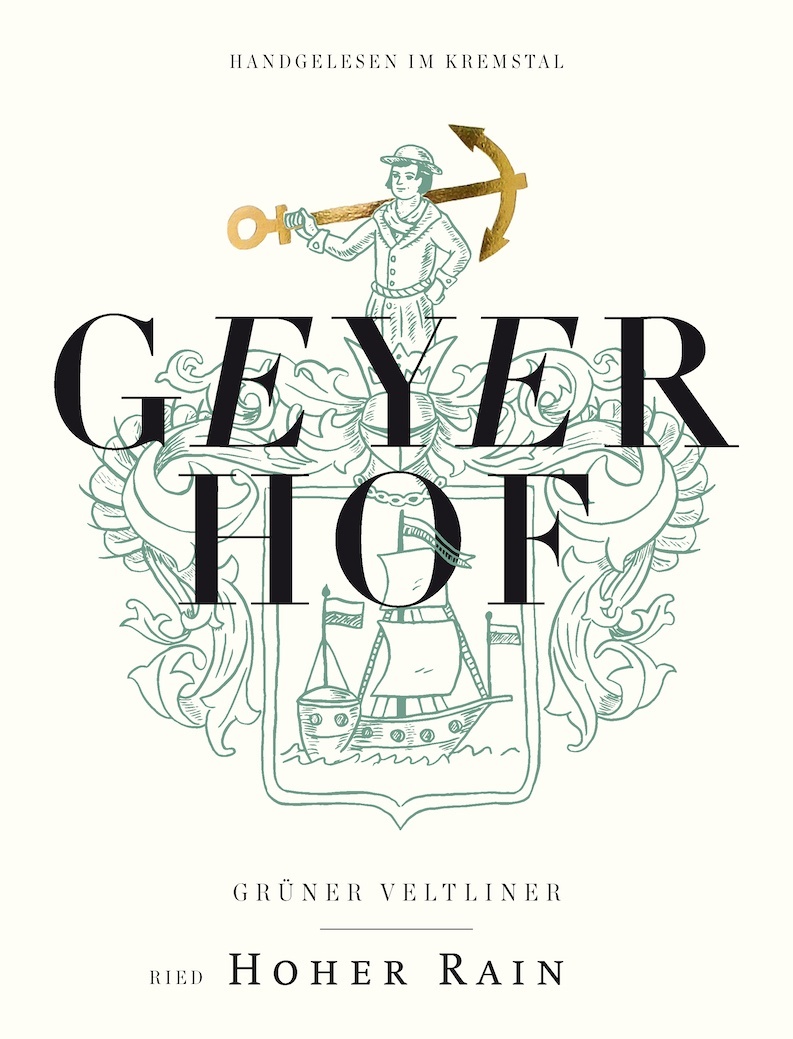
White Wine , Organic
Grüner Veltliner;
13%
4 g/l
7 g/l
Grüner Veltliner;
13%
4 g/l
7 g/l
The mineral rich “Hoher Rain” comes from the sandy, loamy, south-east facing vineyard it is named for. At the top of the hill outside the village of Oberfucha, “hoher” means “top” in German. These well drained soils rich with organic matter lend both minerality and intensity to this Grüner Veltliner. On the palate, slate and clay notes are accented with white pepper and exotic ripe fruit. High toned but playful, lush but with serious cut.
For pairing, take the classic asparagus route, or instead try it with well seasoned braised pork or North African spiced dishes featuring caraway and cumin. This is a wine that will continually evolve in either the glass during a meal or well stored in the bottle.

White Wine , Organic
Grüner Veltliner;
13.4%
1.1 g/l
6.1 g/l
Grüner Veltliner;
13.4%
1.1 g/l
6.1 g/l
The soil is very poor on the southwest facing and 1.4 hectare Steinleithn single vineyard. With only a thin layer of topsoil, the name is easily earned - “Stein” means “stone.” The meat of the soil is rich in feldspar, quartz and mica and often doesn’t get ripe until November. Typically, the rule of thumb is Grüner likes water and Riesling doesn’t. This site splits the difference. The later pick fermented dry adds around 14% of alcohol, but the fruit is far more savory and acidity is by no means compromised. This isn’t the easy substitute for Sauvignon Blanc kind of Grüner, this is something to drink with a healthy portion of Tafelspitz (boiled beef) and any kind of roasted foul. Despite being lucky to offer the 2018, this is something that I wish we could afford to age even more.

White Wine , Organic
Grüner Veltliner;
12%
Grüner Veltliner;
12%
The StockWerk wines pull from the younger vineyards in and around the village of Oberfucha and are usually from granite and gravel soils. These are also the cooler sites buffered by forests, grazing land for their cattle, and North-East facing. These are very much Heuriger/Buschenschank wines to us, in that they are made to have fresh with plenty of accordion and comfort foods. They are bright, happy, lower alcohol, and table wines in the best possible sense.
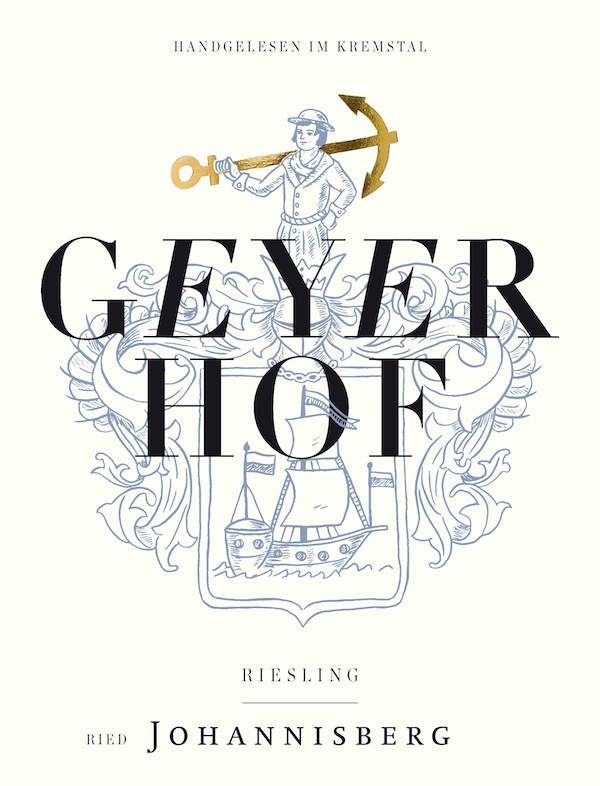
White Wine , Organic
Riesling;
13.5%
6.4 g/l
5.9 g/l
Riesling;
13.5%
6.4 g/l
5.9 g/l
The 50-70 year old vines at Johannisberg are located near the Goldberg and Rosensteig single vineyards and dominated by 15 million-year-old sandy calcareous and conglomerate rock soils. Yields are often very low, but the fruit character is extremely dense and doesn’t drop acidity even when picked as late as early November. As with the majority of the Geyerhof wines, they are often the last family still harvesting fruit. The 2019 was whole bunch pressed, intentionally oxidized (browned) in the press tray, fermented in stainless steel and then left on the lees until February. The 6 g/l of RS adds roundness without obvious sweetness and there’s still 13.5% alcohol to tie the whole thing together. It has all the freshness you’d expect from an Austrian Riesling, but definitely has one toe in the Grosses Gewächs pool as well.

White Wine , Organic
Riesling;
13.3%
1.5 g/l
6.7 g/l
Riesling;
13.3%
1.5 g/l
6.7 g/l
This vineyard is the first impression you get when pulling up to the property. The soil is mostly granite which you can see flicker in the light and results in wines with lower alcohol and a kiss of residual Sugar to balance out the intense acidity. The Kirchensteig was a part of the first 2010 Erste Lage (Frist Growth) classification where for nearly twenty years, the Association of Austrian Traditionsweingüter has been classifying the very best vineyards in Austria. Hand picked, slowly pressed whole bunches, fermented in stainless steel and aged for 19 months on the lees.

Red Wine , Organic
Zweigelt;
12%
Zweigelt;
12%
The StockWerk wines pull from the younger vineyards in and around the village of Oberfucha and are usually from granite and gravel soils. These are also the cooler sites buffered by forests, grazing land for their cattle, and north-east facing. These are very much Heuriger/Buschenschank wines to us, in that they are made to have fresh with plenty of accordion and comfort foods. They are bright, happy, lower alcohol, and table wines in the best possible sense.

Red Wine , Organic
Zweigelt;
12.1%
1.1 g/l
5.1 g/l
Zweigelt;
12.1%
1.1 g/l
5.1 g/l
The StockWerk wines pull from the younger vineyards in and around the village of Oberfucha and are usually from granite and gravel soils. These are also the cooler sites buffered by forests, grazing land for their cattle, and north-east facing. These are very much Heuriger/Buschenschank wines to us, in that they are made to have fresh with plenty of accordion and comfort foods. They are bright, happy, lower alcohol, and table wines in the best possible sense.